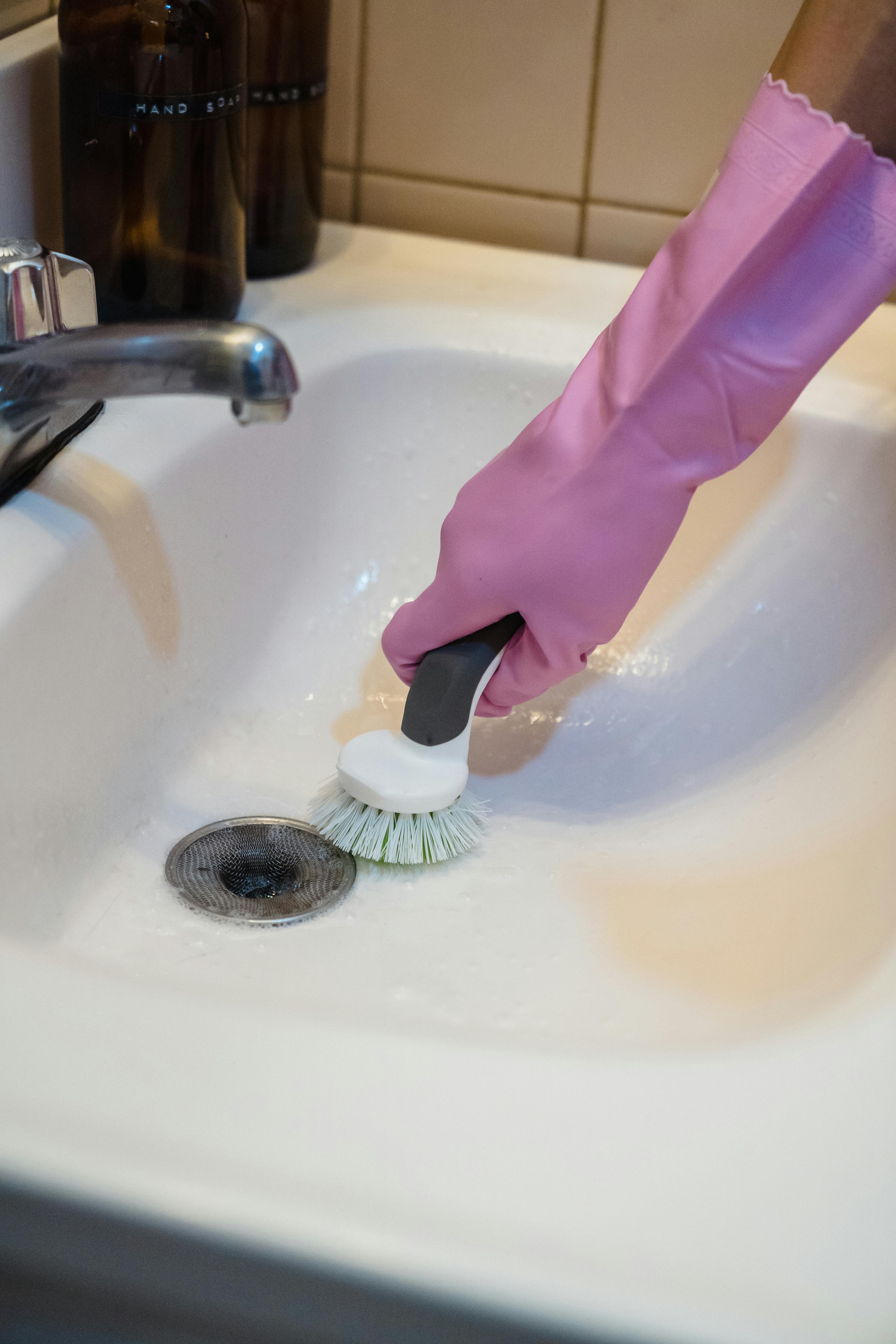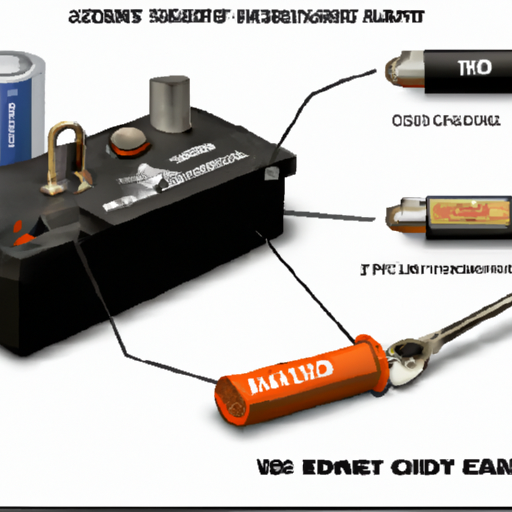Is your Honda Odyssey battery constantly dying on you? It can be frustrating and inconvenient, especially when you’re in a rush or have important errands to run. But don’t worry, there might be a simple explanation for this recurring issue. In this article, we will explore some common reasons why your Honda Odyssey battery may keep dying, providing you with useful insights and tips to help resolve the problem and get you back on the road without any hiccups. So, let’s dive in and find out why this is happening to your beloved Honda Odyssey.

Reasons for Honda Odyssey Battery Drain
If you find yourself constantly dealing with a dead battery in your Honda Odyssey, there could be several reasons for the recurring issue. It’s essential to identify and address the underlying cause to prevent future battery drain problems. Let’s explore some of the common factors that can lead to a Honda Odyssey battery drain and how you can tackle them.
Faulty Battery
One of the primary reasons for a battery drain in your Honda Odyssey is a faulty battery. Over time, the battery may become worn out or damaged, making it unable to hold a charge effectively. If you suspect your battery is the culprit, it’s crucial to have it tested by a professional to determine whether it needs to be replaced.
Parasitic Drain
Parasitic drain refers to the continuous power draw on the battery even when the vehicle is turned off. This drain can be caused by various electrical components in your Honda Odyssey. It’s essential to identify the specific source of the parasitic drain to rectify the issue and prevent further battery drain.
Faulty Charging System
A faulty charging system can contribute to battery drain in your Honda Odyssey. The charging system, consisting of the alternator, voltage regulator, and related wiring, is responsible for replenishing the battery’s charge while the engine is running. If any of these components are malfunctioning, it can lead to inadequate charging and result in a drained battery.
Electrical Component Issues
Issues with specific electrical components in your Honda Odyssey can also cause battery drain. The starter motor, alternator, and battery cables play crucial roles in maintaining the vehicle’s electrical system. If any of these components are defective or damaged, they can contribute to a drain on the battery.
Signs of a Dying Battery
Before delving deeper into the causes of battery drain, it’s essential to recognize the signs of a dying battery in your Honda Odyssey. By being aware of these indicators, you can address any battery issues early on and prevent unexpected breakdowns.
Dim Headlights
Dim headlights can be a telltale sign that your battery is dying. If you notice that your headlights appear less bright than usual, it’s a good idea to have your battery inspected. Dim headlights can indicate that the battery is struggling to provide enough power to the vehicle’s electrical system.
Slow Engine Crank
If you experience a slow cranking sound or delay when starting your Honda Odyssey, it could be indicative of a dying battery. A healthy battery provides the necessary power to start the engine quickly and smoothly. If the crank is sluggish or takes longer than usual, it may be time to replace your battery.
Frequent Need for Jump-Starting
If you find yourself frequently needing to jump-start your Honda Odyssey, it’s a clear sign that your battery is not holding a charge effectively. While jump-starting can provide a temporary solution, it’s essential to address the underlying issue to prevent further inconvenience and potential damage to the battery.
Electrical Malfunctions
A dying battery can also manifest through various electrical malfunctions in your Honda Odyssey. You may experience issues like flickering dashboard lights, radio or infotainment system glitches, or power windows and locks performing inconsistently. If you notice these electrical problems, it’s worth investigating the condition of your battery.

Faulty Battery
Now that we’ve covered the signs of a dying battery, let’s delve deeper into the potential causes behind its deterioration.
Age of the Battery
The age of your Honda Odyssey’s battery plays a significant role in its performance. As batteries age, their ability to hold a charge diminishes, leading to increased chances of a drain. If your battery is approaching the end of its average lifespan (typically around 3-5 years), it may be time to replace it.
Battery Sulfation
Battery sulfation occurs when sulfate crystals accumulate on the battery plates, reducing its capacity to hold a charge effectively. This buildup often happens when the battery is left discharged for extended periods or isn’t properly maintained. Regularly inspecting and maintaining your battery can help prevent sulfation and prolong its lifespan.
Faulty Battery Cells
A battery consists of individual cells that work together to provide power. If one or more of these cells are defective, it can lead to poor performance and eventual battery drain. A professional battery test can identify faulty cells and determine whether the battery needs to be replaced.
Parasitic Drain
Parasitic drain is a common culprit behind battery drain issues in vehicles, including the Honda Odyssey. Understanding what causes parasitic drain and how to identify it can help you effectively troubleshoot and prevent this problem.
Definition and Causes
Parasitic drain occurs when electrical components draw power from the battery when the vehicle is off. Some common causes of parasitic drain include faulty switches, malfunctioning modules, damaged wiring, or improperly installed aftermarket accessories.
Identifying Parasitic Drain
To identify parasitic drain, you can perform a parasitic drain test. This involves disconnecting the negative battery cable and connecting a multimeter between the cable and the battery terminal. If the multimeter shows a significant current draw (usually above 50 milliamps), there is likely parasitic drain present.
Common Culprits
Several electrical components in your Honda Odyssey can contribute to parasitic drain. Some common culprits include faulty door switches, malfunctioning interior lights, improperly installed car alarm systems, or a malfunctioning radio or infotainment unit. Properly identifying the specific source of the drain is crucial to rectify the issue.
Preventing Parasitic Drain
Preventing parasitic drain involves proactive measures such as ensuring all electrical components are functioning correctly, installing aftermarket accessories properly, and regularly inspecting and maintaining the battery. If you suspect parasitic drain but are unable to identify the source, consulting a professional technician can help resolve the issue.

Faulty Charging System
A faulty charging system can undermine the battery’s ability to hold a charge and lead to frequent draining in your Honda Odyssey. Let’s explore some common issues within the charging system and how they can be addressed.
Alternator Issues
The alternator is responsible for generating electricity to charge the battery and power the vehicle’s electrical system while the engine is running. If the alternator is faulty or failing, it may not provide sufficient charge to the battery, leading to drain. Regular alternator inspections and timely replacements can help prevent this issue.
Voltage Regulator Problems
The voltage regulator regulates the charging rate of the alternator to prevent overcharging or undercharging the battery. If the voltage regulator malfunctions, it can disrupt the battery’s charging process and contribute to drain. Regular maintenance and inspections can help identify voltage regulator issues early on.
Wiring or Belt Issues
Faulty wiring or damaged belts within the charging system can cause disruptions in power delivery to the battery. A loose connection or a damaged belt may result in inadequate charging and eventual drain. Regular inspections and maintenance of the charging system can help identify and resolve these issues promptly.
Electrical Component Issues
Defective or malfunctioning electrical components within your Honda Odyssey can also lead to battery drain. Let’s examine some common culprits and their impact on your vehicle’s battery.
Defective Starter Motor
The starter motor is responsible for initiating the engine’s combustion process. If the starter motor fails or becomes defective, it may draw excessive power from the battery, leading to drain. Regular inspections and immediate replacement of a faulty starter motor can help prevent this issue.
Malfunctioning Alternator
While the alternator primarily falls under the charging system, a malfunctioning alternator can also impact the battery’s performance. If the alternator fails to provide sufficient charge, the battery’s reserve power may drain more quickly. Regular alternator maintenance and prompt repair can help address this issue.
Battery Cable Problems
Battery cables connect the battery to the electrical system, enabling the flow of power. If the battery cables are corroded, loose, or damaged, they can inhibit proper power transfer and contribute to battery drain. Regular inspection and maintenance of the battery cables can help prevent this problem.

Weather-Related Factors
Extreme temperatures and humidity can also impact the performance of your Honda Odyssey’s battery, leading to drain. Let’s explore how these weather-related factors can affect your vehicle.
Extreme Temperatures
Both extreme cold and hot temperatures can affect the chemical reactions within the battery, reducing its ability to hold a charge effectively. In colder climates, the battery may struggle to provide sufficient power, while in hotter climates, the battery may become more susceptible to sulfation. Maintaining your vehicle in suitable temperature conditions can help mitigate these effects.
Humidity and Corrosion
High humidity levels can contribute to the corrosion of battery terminals and electrical connections, inhibiting the flow of power and leading to drain. Regularly inspecting and cleaning battery terminals and connections can help prevent corrosion-related battery issues.
Improper Battery Maintenance
Lack of proper battery maintenance can also contribute to recurrent battery drain in your Honda Odyssey. Let’s explore some common oversights in battery maintenance and how they can impact battery performance.
Lack of Battery Inspections
Regular battery inspections are crucial to identify any signs of deterioration or damage. Overlooking battery inspections can lead to undetected issues that eventually cause drain. Schedule regular inspections to ensure your battery is in optimal condition.
Corroded Battery Terminals
Corrosion on battery terminals can hinder the flow of power between the battery and the electrical system. Regular cleaning and maintenance of battery terminals can help prevent corrosion-related battery drain issues. Use battery terminal cleaner or a mixture of baking soda and water to clean the terminals.
Loose or Damaged Battery Connections
Loose or damaged battery connections can disrupt the flow of power between the battery and the electrical system. Regularly inspecting and tightening battery connections can prevent issues arising from loose or damaged connections. Ensure all battery connections are securely fastened.

Aftermarket Accessories
Installing incompatible or poorly fitted aftermarket accessories in your Honda Odyssey can affect its electrical system, leading to battery drain issues. Let’s explore the impact of aftermarket accessories and how to prevent excessive power drain.
Incompatible or Poorly Installed Accessories
If aftermarket accessories are not compatible with your vehicle’s electrical system or improperly installed, they can draw excessive power from the battery. It’s crucial to ensure that any aftermarket accessories are compatible and professionally installed to prevent drain issues.
Excessive Power Drain
Certain aftermarket accessories, such as powerful audio systems or additional lighting, can draw significant power from the battery. While adding these accessories can enhance your driving experience, it’s essential to consider the impact on your battery’s performance. Properly managing power drain and using additional power sources, if necessary, can help prevent battery drain.
Driving Habits
Your driving habits can influence the performance and health of your Honda Odyssey’s battery. Let’s explore some common driving habits that can contribute to battery drain and how to mitigate their effects.
Short Trips
Frequently taking short trips without allowing the battery to fully recharge can lead to drain over time. The battery needs sufficient time to replenish its charge, which may not occur during shorter trips. If possible, try to combine shorter trips or use a battery maintainer to ensure the battery remains charged.
Infrequent Driving
Infrequent driving can also contribute to battery drain as the battery may not have enough time to recharge fully between uses. Maintaining a regular driving schedule or using a battery maintainer during prolonged periods of inactivity can help mitigate drain issues.
Excessive Idling
Extended periods of idling, such as leaving the engine running while stationary for long durations, can drain the battery. It’s recommended to minimize unnecessary idling to conserve battery power and prevent drain.
In conclusion, a Honda Odyssey battery drain can be caused by various factors, including a faulty battery, parasitic drain, a faulty charging system, electrical component issues, weather-related factors, improper battery maintenance, aftermarket accessories, and driving habits. By being proactive in identifying and addressing these issues, you can ensure a reliable and long-lasting battery performance in your Honda Odyssey.
